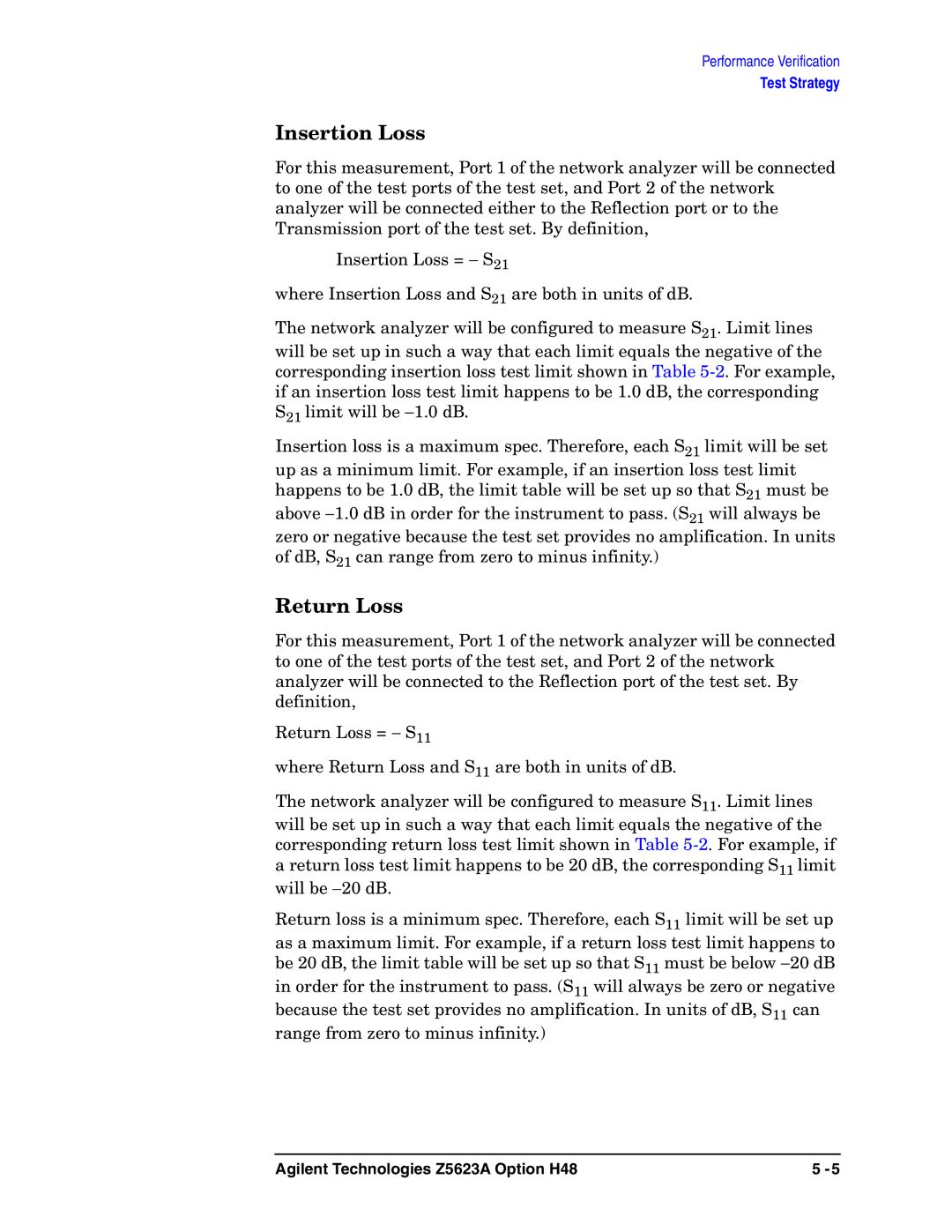Performance Verification
Test Strategy
Insertion Loss
For this measurement, Port 1 of the network analyzer will be connected to one of the test ports of the test set, and Port 2 of the network analyzer will be connected either to the Reflection port or to the Transmission port of the test set. By definition,
Insertion Loss = − S21
where Insertion Loss and S21 are both in units of dB.
The network analyzer will be configured to measure S21. Limit lines will be set up in such a way that each limit equals the negative of the corresponding insertion loss test limit shown in Table
Insertion loss is a maximum spec. Therefore, each S21 limit will be set up as a minimum limit. For example, if an insertion loss test limit happens to be 1.0 dB, the limit table will be set up so that S21 must be above −1.0 dB in order for the instrument to pass. (S21 will always be zero or negative because the test set provides no amplification. In units of dB, S21 can range from zero to minus infinity.)
Return Loss
For this measurement, Port 1 of the network analyzer will be connected to one of the test ports of the test set, and Port 2 of the network analyzer will be connected to the Reflection port of the test set. By definition,
Return Loss = − S11
where Return Loss and S11 are both in units of dB.
The network analyzer will be configured to measure S11. Limit lines will be set up in such a way that each limit equals the negative of the corresponding return loss test limit shown in Table
Return loss is a minimum spec. Therefore, each S11 limit will be set up as a maximum limit. For example, if a return loss test limit happens to be 20 dB, the limit table will be set up so that S11 must be below −20 dB in order for the instrument to pass. (S11 will always be zero or negative because the test set provides no amplification. In units of dB, S11 can range from zero to minus infinity.)
Agilent Technologies Z5623A Option H48 | 5 |
